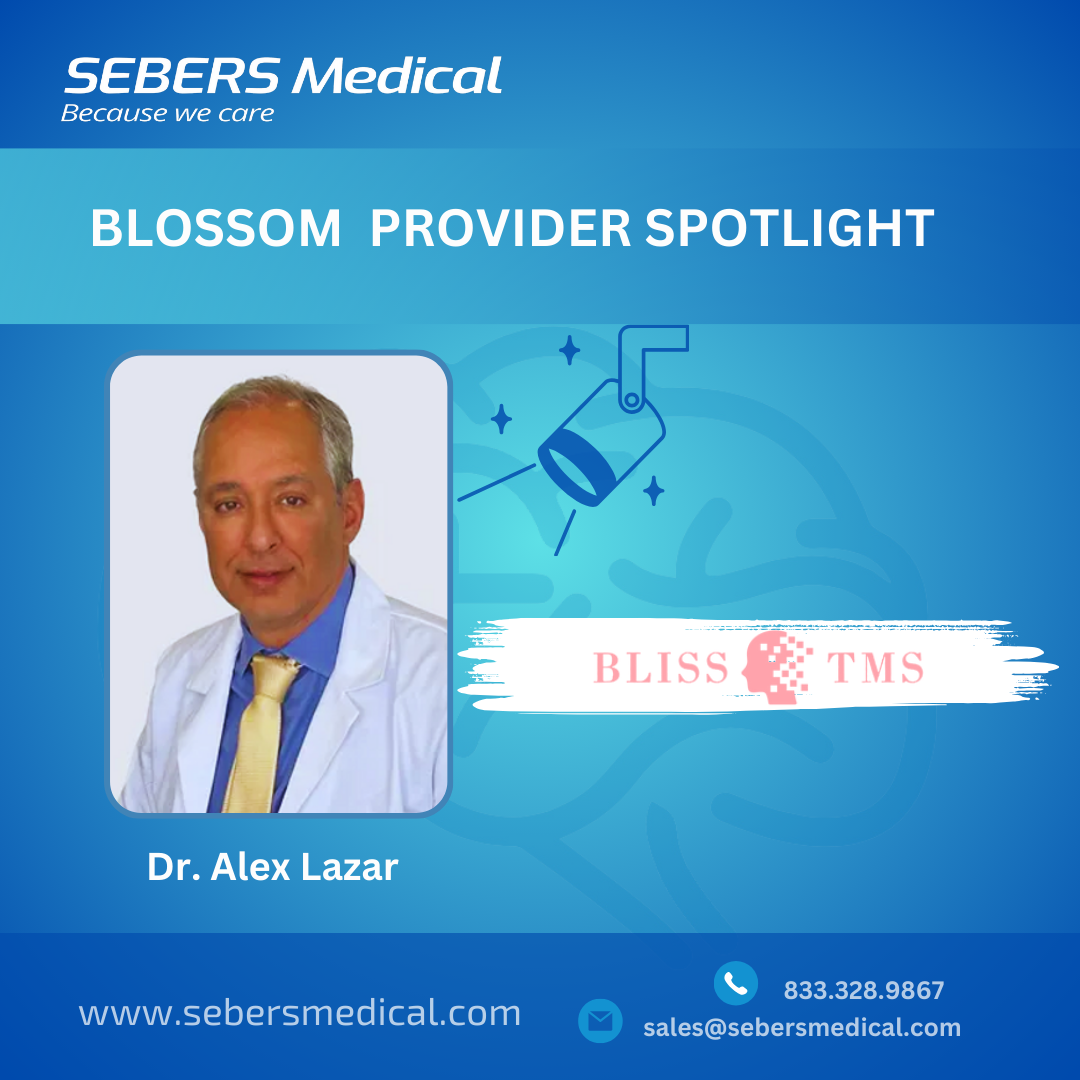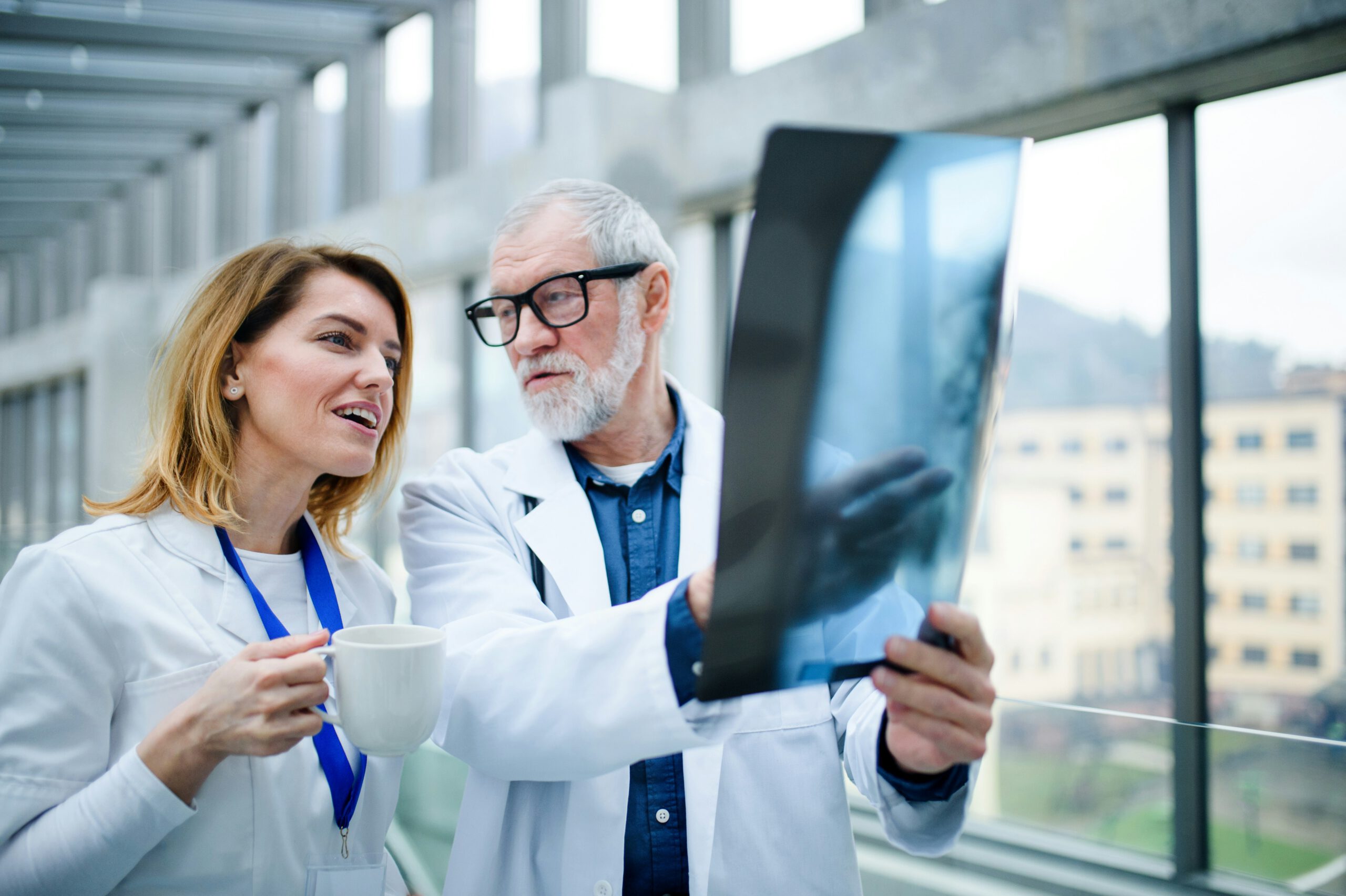Welcome to the Blossom Provider Spotlight series, where we highlight outstanding providers in the mental health field. This week, we’re thrilled to feature Dr. Alex Lazar, a highly experienced psychiatrist based in Encino, California. With over two decades of practice in adult and child psychiatry, Dr. Lazar has recently expanded his treatment offerings to include Transcranial Magnetic Stimulation (TMS), providing his patients with cutting-edge care for treatment-resistant depression and other mental health conditions.
Interview with Dr. Alex Lazar – Bliss TMS
Blossom TMS: What inspired you to pursue a career in psychiatry and mental health?
Dr. Alex Lazar: My interest in psychiatry and mental health began during my medical school rotations. Psychiatry quickly became one of my favorite fields because I enjoyed talking to people about their stories and lives. It was fascinating to me, and that fascination led me to specialize in this area.
Blossom TMS: How long have you been in practice, and where is your current practice located?
Dr. Alex Lazar: I completed medical school in 1996 and went on to train in adult psychiatry at UCLA San Fernando, followed by child psychiatry at Cedars-Sinai Medical Center. I’ve been in private practice since 2001, so for about 23 years now. My practice is located in Encino, California, a suburb of Los Angeles.
Blossom TMS: What first sparked your interest in TMS therapy, and how has your experience been so far?
Dr. Alex Lazar: I had been practicing medication management and therapy for years, but I was always interested in exploring new treatment modalities. Although TMS has been around for a while, I initially had concerns about the barriers to entry, such as the cost of the machine and the learning curve. However, once I researched more and found a suitable machine and space in my office, I decided to move forward with it. My experience so far has been positive, and it’s rewarding to have another effective treatment option to offer my patients.
Blossom TMS: Can you share any specific patient stories that highlight the impact of TMS therapy?
Dr. Alex Lazar: I’ve had many patients who have seen significant improvements with TMS, especially those who were struggling with severe depression and had not responded to other treatments. One case that stands out is a young college student who began feeling much better after just 7 to 10 sessions. Another was a woman who had lost a child and was deeply depressed; she also experienced substantial improvement. While not every patient responds, the majority do, and the results can be quite profound.
Blossom TMS: What do you find unique about the patient experience with TMS compared to other treatment modalities?
Dr. Alex Lazar: One of the unique aspects of TMS is the frequency of visits, which allows for a closer connection with patients. Having them come into the office regularly helps build a stronger therapeutic relationship. However, the real effectiveness lies in the TMS treatment itself. It’s not just the increased interaction; TMS genuinely works for many patients.
Blossom TMS: How has the scheduling of TMS sessions worked out for your patients?
Dr. Alex Lazar: While TMS typically requires patients to come in five days a week, I’ve found that flexibility is key. Some patients can only manage three days a week due to their schedules, but they still see improvements. The important factor seems to be the total number of sessions rather than strictly adhering to a five-day-a-week schedule.
Blossom TMS: What are your thoughts on the future of TMS therapy?
Dr. Alex Lazar: I’m excited to see TMS being applied to more conditions beyond treatment-resistant depression and OCD. There’s ongoing research into its use for conditions like smoking cessation, tinnitus, migraines, and anxiety. I’m particularly interested in seeing how it might be used to treat bipolar depression, as I’ve had some promising results with that in my practice.
Blossom TMS: What drew you to the Blossom TMS device, and how has it performed in your practice?
Dr. Alex Lazar: The Blossom TMS device was a great fit for my practice because of its compact design, which is ideal for my smaller treatment room. The team at Blossom has been incredibly supportive and responsive, which made the transition smooth. The machine is user-friendly, and any issues I’ve encountered were quickly resolved. I’ve been very happy with my decision to go with Blossom.
Blossom TMS: Is there anything else you’d like to share about your experience with TMS and Blossom?
Dr. Alex Lazar: I’d just like to emphasize how pleased I am with both the results I’m seeing in my patients and the support I’ve received from Blossom TMS. The device is affordable and reliable, which makes it accessible for more providers and patients. I believe TMS has a bright future, and I’m glad to be part of that journey.
To learn more about Blossom TMS, visit Seber’s Medical.





